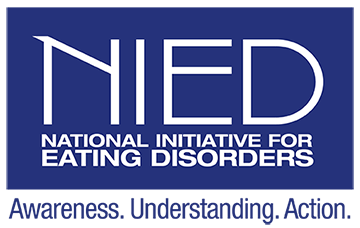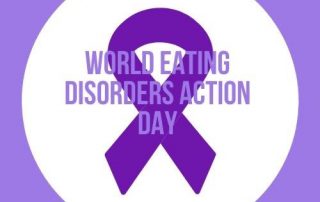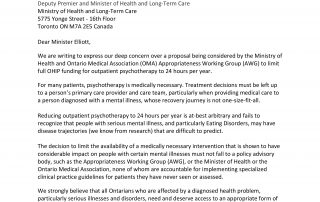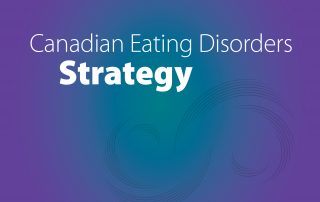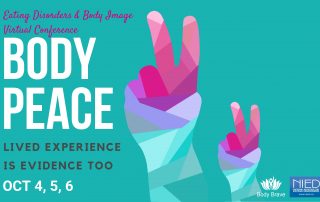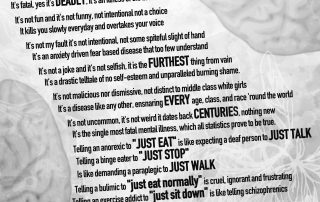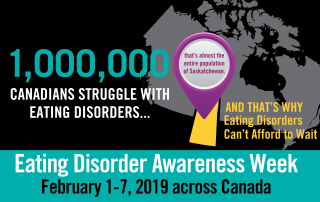The National Initiative for Eating Disorders (NIED), National Eating Disorder Information Centre (NEDIC), the Canadian Mental Health Association (CMHA), Looking Glass Foundation, and Body Brave have joined forces to develop this year’s campaign: Eating Disorders can’t afford to wait. With millions of Canadians experiencing the devastating impact of Eating Disorders, the funding and treatment of Eating Disorders can no longer be put on hold.
To date, EDAW has been proclaimed in seven provinces, supported by 60+ municipal proclamations. There are over 35 individual events, programs, special ceremonies and discussions taking place in nine provinces and territories. This is all being done to generate greater awareness about the severity and continued escalation of people being affected by Eating Disorders.
EDAW will help affirm the experiences of those affected by an Eating Disorder. The week aims to educate the public about the impact of Eating Disorders, dispel the myths and stigmas associated with them and illuminate the tremendous gaps in funding and services. The ultimate goal is to motivate decision makers in positions of influence to provide, among other things, better and more affordable prevention and treatment options, enhanced training for professionals and greater support for caregivers.
To engage in our #ShowUsYourPurple social media campaign and for a complete listing of events taking place across the country, please visit the EDAW website at www.nedic.ca/EDAW.
Join us February 1 through to February 7th to help shine a light on this debilitating mental illness. Those suffering, and their families, need your support. Please consider donating to one or more of the participating organizations. Your support can make a difference to many lives. We can do better. We must do better.
About the partners behind the Eating Disorders Awareness Week campaign:
National Initiative for Eating Disorders (NIED) is the voice for Canadian families, caregivers, and individuals who are affected by Eating Disorders and other co-morbid and concurrent diagnoses. NIED helps caregivers, patients, and practitioners fill gaps in care through education and by highlighting better practices in prevention, health promotion, and treatment. www.nied.ca
National Eating Disorder Information Centre (NEDIC) operates Canada’s only national Toll-Free Helpline and Instant Chat services providing information on treatment option and/or support to people across Canada either directly or indirectly affected by disordered eating and related concerns. www.nedic.ca
Founded in 1918, the Canadian Mental Health Association (CMHA) is the most established, most extensive community mental health organization in Canada. Through a presence in more than 330 communities across every province, CMHA provides advocacy, programs and resources that help to prevent mental health problems and illnesses, support recovery and resilience, and enable all Canadians to flourish and thrive.
For more information, visit www.cmha.ca
Looking Glass Foundation’s programs and services decrease isolation, instill hope, and sustain recovery for individuals across British Columbia who are impacted by eating disorders: www.lookingglassbc.com
Body Brave delivers innovative local and national services that address the major gaps in resources for eating disorders, in collaboration with those with lived experience and our community partners. www.livingbodybrave.com
For more information, please contact:
Lynne Koss
Co-Founder, NIED
lynne@nied.rpcreates.com
(416) 843-3496
Ary Maharaj
Outreach & Education Coordinator, NEDIC
aryel.maharaj@uhn.ca
